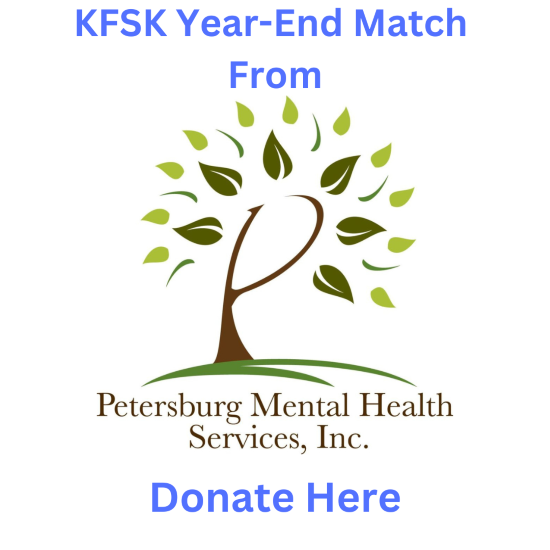A group of local residents is continuing work to try and offer some solutions for people in Petersburg addicted to drugs. That group met this week and updated their efforts that build off of community meetings last year.
The discussion continued this week with five community members gathering at the library to report on what work they’ve done to follow up on a series of meetings that started last year. The group is made up of volunteers, former drug users, counselors and interested community members.
Chelsea Tremblay has been looking into getting some new materials at the library for people looking to learn more about addiction and how to get help. She also talked about having a prescription medication drop box at the newly renovated police station for people to turn in unused pain killers. And she hopes to have a radio Health Tip done by the Petersburg Medical Center covering what resources are available locally. “Because we know that they’re inadequate but even just getting out there what we already have access to I think is the first step for identifying where the holes are,” Tremblay said.
Another hope is to have a pamphlet printed that outlining local resources and other places to seek help or a checklist for someone looking to start the road to recovery. Annette Wooten, director of Petersburg’s domestic violence advocacy group WAVE, explained the need for that list. “When someone’s at that moment of deciding to make a change because if someone comes to me today and asks me I wanna get off this I’m done, where do I point them? So that’s what we’re hoping to create is that list.”
Wooten also has started to research the possibilities for a needle exchange in Petersburg. She noted that organizations that receive federal funding like WAVE are not allowed to provide that service. “And I think there’s going to be a lot of pushback in Petersburg,” Wooten said. “I think that a lot of people are going to think that by offering a needle exchange we are helping them…enabling.”
A needle exchange could help slow down the spread of Hepatitis C and HIV among drug users but Wooten wondered what local organization would be willing or able to offer that service.
The group is also working to identify what treatment centers are available outside of twon and more information about cost of treatment. One local resident who’s been through a residential treatment program for substance abuse Lars Christensen contributed his thoughts at the meeting. “We have a big problem in this town for lack of better words there’s the junkies and the straight people and there’s no communication and no trust,” Christensen said. “The straight people think the junkies are like what you see on TV…and the junkies are all worried the straight people are going to throw ‘em in jail. Cause right now that’s our answer right, like that is the answer, so.”
Christensen estimated something like 300, or about 10 percent of people in town use harder drugs like heroin or methamphetamine. He said some of them have been approaching him about getting help.
Meetings of the group last year focused on law enforcement efforts to slow the drug supply along with requests from recovering addicts for more treatment and support. Tremblay acknowledged the first steps in the effort would be small but said the ultimate goal would be a resource center for multiple local services. “We’re imagining a facility that would have WAVE, this center, maybe a live-in facility, like something that could help people, just a sober space in general, a sober safe space for the community, that’s open hours after the library, you know when people really need it,” Tremblay said.
The discussion is open to anybody and their next meeting is scheduled for February 21st. Similar discussions are happening in other communities around the state and at the statewide level. In fact, the Alaska Opioid Policy Task Force this month issued a set of recommendations for prevention, treatment and recovery support. Among the recommendations are treating addiction as a chronic disease, removing the stigma of addiction and making treatment options available as close to home as possible.
The state has also received a federal grant to distribute heroin overdose kits with the drug Narcan around Alaska.











